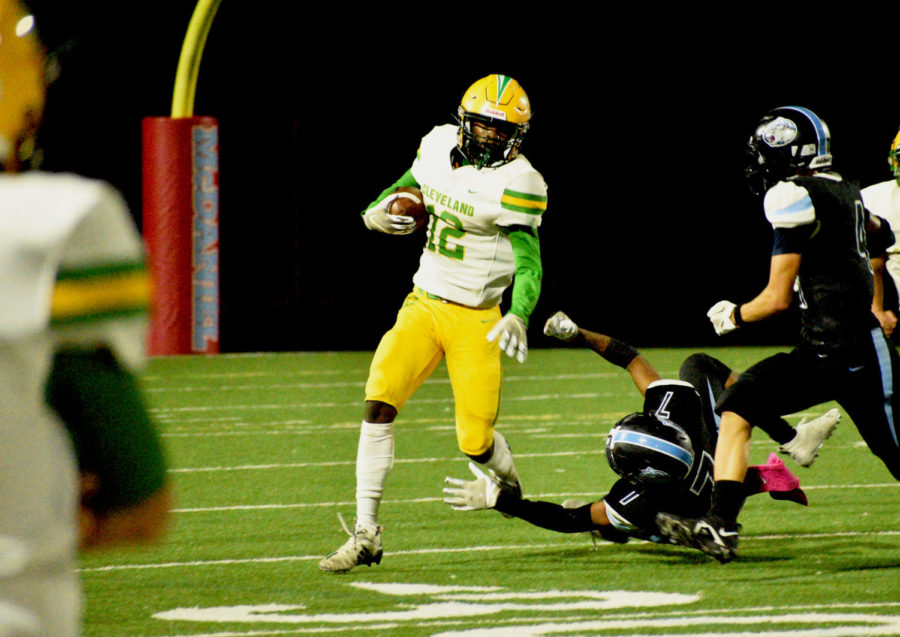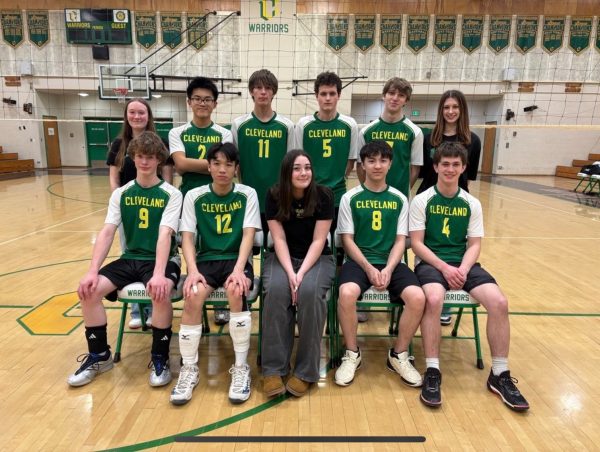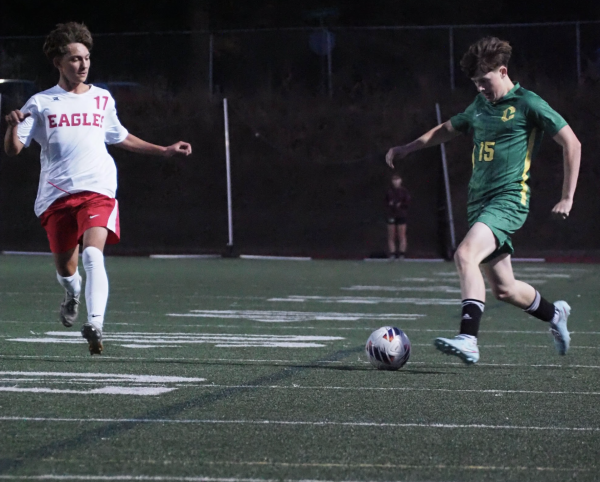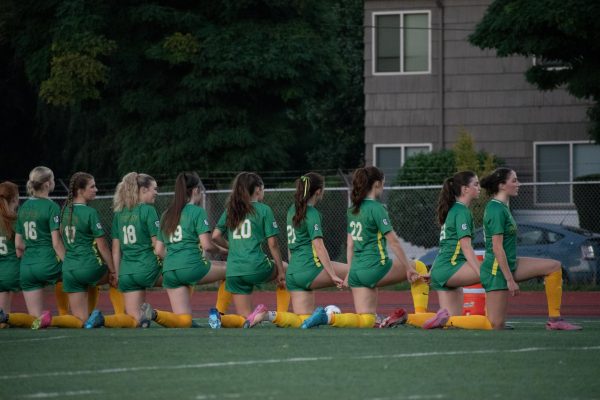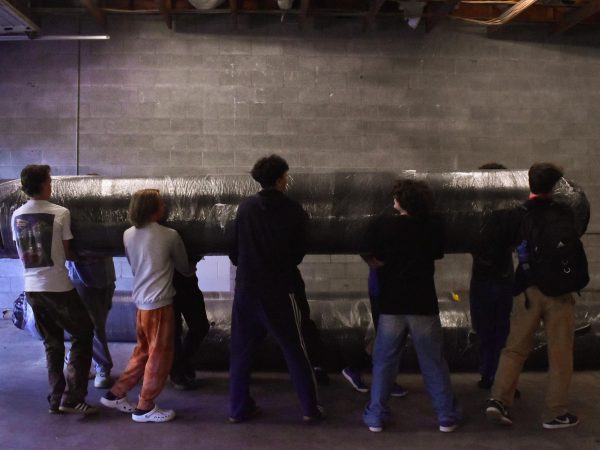October Fires Dilemma: Health or Play?
Fires in PNW make athletes choose between sports and health
Clarion photo Kama Waiwaiole
Athletes this fall not only faced tough competition but had the added component of smoke from fires to contend with.
During the weeks of October in Portland it wasn’t uncommon to wake up to the smell of smoke. For student athletes, the fires bring the dangerous effects of playing their sport in bad air quality.
The wildfires in Oregon and Washington have become more frequent and much larger in the past few years. During the wildfire season the air quality in Portland and surrounding areas declines heavily. On Oct. 19 Portland had the worst air quality in the world, at just under 200 on the Air Quality Index (AQI).
Student athletes have to adjust to these conditions. Officials cancel or postpone practices and games more frequently, and playing outside starts to become dangerous to athletes’ health. For example, on Oct. 14 Cleveland’s cross country team was one of the first sports to have a meet in the smoke.
“The air quality really affected the whole team’s performance; we did much worse than normal,” said Maggie Gibson, cross country runner.
This was just the beginning. As the month went on, the wildfires continued to grow in Southern Washington, just across the Columbia river from Portland. Southern Oregon had its own fires to deal with as well.
With the fires comes another big issue: health risks. According to Spare the Air, a program created to combat air pollution in the San Francisco Bay Area, poor air quality can irritate your throat and eyes, cause shortness of breath, and affect the heart and cardiovascular system.
Student athletes have to find the balance between participating in sports and taking care of their health.
Eliza Watkins, a junior varsity player for the Cleveland soccer team said, “I’ve had a lot of games when it’s really smoky and I can tell at practice the next day that I have more shortness of breath and coughing while playing.”
Also, fires earlier this year in California, Oregon, and Washington affected athletes. The recent wildfires have brought up old memories of playing during that time for some.
“It was hard to breathe, y’know, just while running outside in the smoke,” said Quinn Olsen, a junior varsity two soccer player at Cleveland. “I just couldn’t catch my breath.”
Another struggle that is brought out by the smoke is the constant rescheduling and canceling of games. Student athletes frequently had to replan their days and go home after being told every day more games had been canceled.
Kelly Sauer, athletic director at Cleveland High School, explained how the school decides when to reschedule games.
“We follow OSAA guidelines which state once AQI in our area of play, (we use the average of high quality sensors) hit 151 or higher, outside contests and practices must be canceled or moved indoors,” said Sauer.
During October the AQI was above 150 for almost a week, which caused a total of 11 games from the entire Cleveland soccer program to be canceled. In addition, one cross country meet was canceled. It
Wildfires in Oregon and the Pacific NorthWest are common, but Portlanders are starting to see the effects of them more often. Student athletes and athletes in general may have to learn to deal with the bad air quality multiple times a year.
According to the United States Environmental Protection Agency (EPA), “Multiple studies have found that climate change has already led to an increase in wildfire season length, wildfire frequency, and burned area.”
These fires will continue during sports for years to come. Athletic programs will have to learn a new way to continue activities during the smoky seasons, and educate student athletes about the health risks that come with playing in bad air quality.



